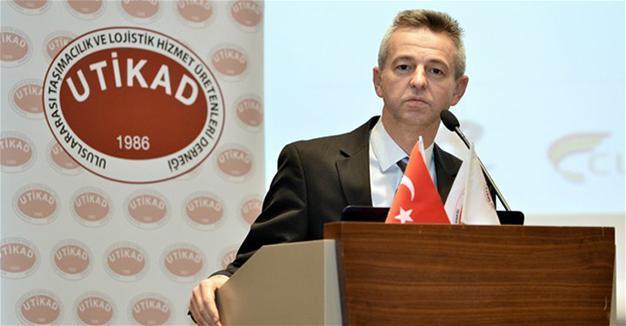Turkey’s logistics sector end 2016 with slight contraction amid problems: Association
ISTANBUL
 Turkey’s logistics sector experienced slight contraction in 2016 after a series of clashes on its southern borders, a crisis with Russia, sharp fluctuations in foreign exchanges and tightening EU borders, according a leading association, as reported by Reuters on Jan. 3.
Turkey’s logistics sector experienced slight contraction in 2016 after a series of clashes on its southern borders, a crisis with Russia, sharp fluctuations in foreign exchanges and tightening EU borders, according a leading association, as reported by Reuters on Jan. 3. Members of the Association of International Forwarding and Logistics Service Providers (UTİKAD) are expecting a potential liberalization in railway transportation in 2017. They said the Kars-Tbilisi railway line and the reestablishment of peace in Syria would have a positive impact on the sector.
“The crisis with Russia, shutting roads to the Middle East due to problems in Iraq and Syria, a wait-and-see tendency for investments after the July 15 coup attempt, and tightening EU borders amid the refugee crisis have negatively affected the logistics sector,” UTİKAD President Emre Eldener has said.
“Severe fluctuations in foreign exchange rates have also hit our businesses. Many goods had to be kept in storehouses. As imports were postponed with the hopes of a possible ease in forex rates, import loadings slowed down. We can say that the declining trends in freight transportation will likely have a negative impact on the sector’s revenue,” Eldener said at a press meeting on Jan. 3.
The revenue of the sector, which included transportation, logistics and warehousing, was announced slightly above $100 billion in 2016, showing some slight shrinkage compared to the previous year.
He stressed that a similar trend was expected in 2017.
“The uncertainties still remain. Turkey’s ties with Russia have normalized, but restrictions on good transportations are not lifted yet. We expect 2017 will be like 2016,” he added.
Eldener also said the shrinkage in foreign trades directly affected their sector.
“The mandatory requirement for trucks to cross the Yavuz Sultan Selim Bridge in Istanbul and the waiting hours at the Kapıkule Border Gate had also increased costs,” he said.
















